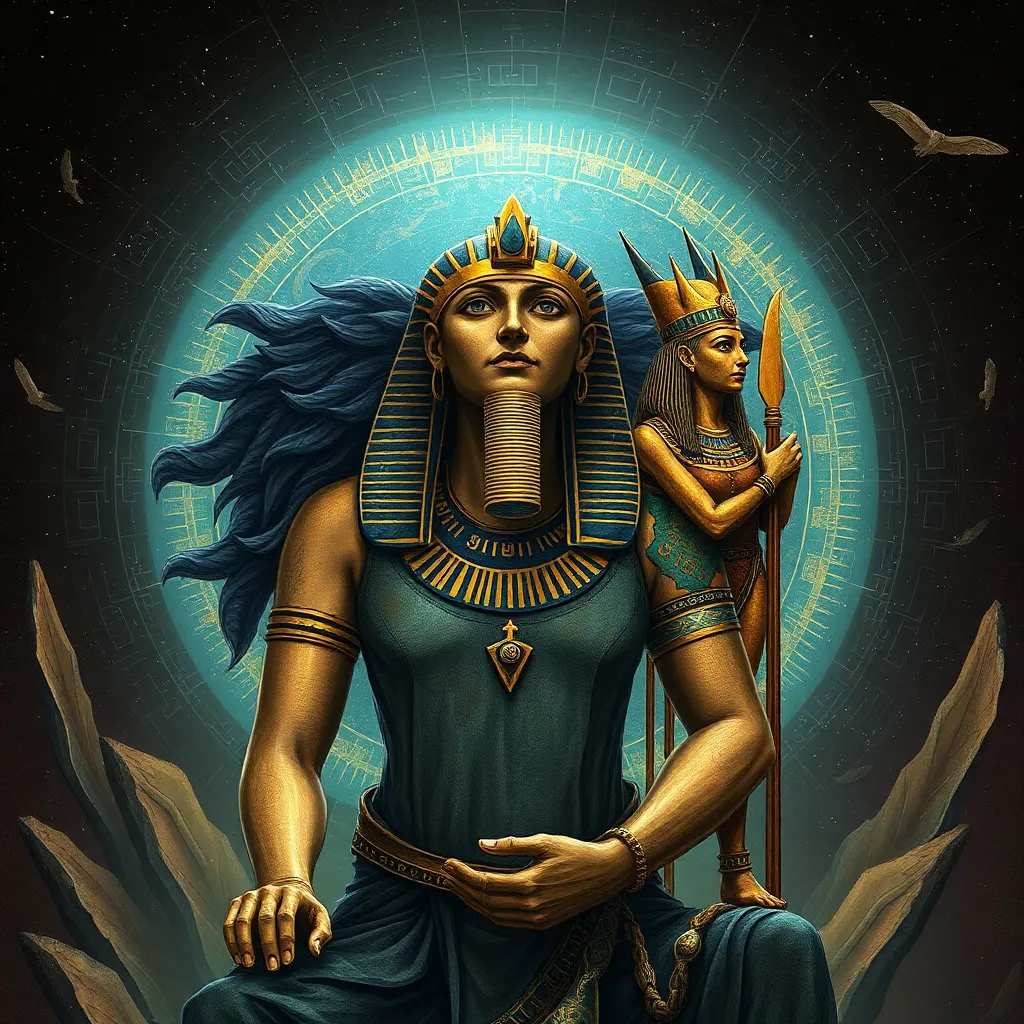The Role of Isis: Motherhood and the Cosmos
I. Introduction
Isis stands as one of the most significant and multifaceted figures in Egyptian mythology. Revered as the goddess of motherhood, magic, and fertility, she embodies the nurturing aspects of femininity while also holding profound cosmic connections. The importance of motherhood in Isis’s narrative is paramount, as she not only nurtures her own child, Horus, but also symbolizes the greater cosmic order through her relationships and actions. Through her myths, Isis illustrates the intertwining of earthly motherhood with celestial themes, making her an enduring symbol in both ancient and modern contexts.
II. Historical Context of Isis
The worship of Isis dates back to the early dynastic periods of ancient Egypt, evolving significantly over the centuries. Initially revered as a local deity, her cult expanded until she became one of the most popular goddesses across the Mediterranean.
- Origins and Evolution: Isis’s worship began in the Nile Delta and spread throughout Egypt, absorbing various attributes and influences from other cultures.
- Key Myths: Central to her mythology is the story of her marriage to Osiris and her subsequent quest to resurrect him after his murder by Set.
- Cultural Impact: Isis was venerated in temples, and her narratives were depicted in art, influencing not just Egyptian religion but also later cultures.
III. Isis as the Archetype of Motherhood
Isis epitomizes maternal qualities, representing not only the nurturing aspect of motherhood but also the protective instincts that mothers embody.
- Maternal Qualities: Isis is often depicted as a caring mother who provides for her son, Horus, ensuring his safety and growth.
- Resurrection of Osiris: Her legendary quest to resurrect her husband, Osiris, showcases her determination and strength. By gathering his body parts and using her magical abilities, she restores him to life, thereby ensuring the continuation of the divine lineage.
- Fertility and Nurturing: Iconography associated with Isis often includes symbols of fertility, such as the Ankh and the cow horns, reinforcing her role as the giver of life.
IV. Cosmic Associations of Isis
Beyond her role as a mother, Isis is deeply connected to cosmic themes, representing the stars and the celestial order.
- Connection to the Stars: Isis is often associated with the star Sirius, which was significant in the Egyptian calendar and agriculture.
- Astrology: Worship of Isis included astrological practices, where her movements and the appearance of Sirius were believed to influence earthly events.
- Cosmic Myths: Several myths position Isis as a guide or mediator between the earth and the heavens, emphasizing her vital role in the cosmic order.
V. The Duality of Isis: Earthly and Cosmic
The duality of Isis as both a nurturing mother and a powerful cosmic entity reflects the balance inherent in ancient Egyptian beliefs.
- Motherhood and Cosmic Power: Isis embodies the dual nature of existence, where earthly responsibilities of motherhood coexist with her celestial influence.
- Nurturing and Divine Attributes: This duality allows Isis to connect with her followers on both personal and universal levels, making her an accessible yet powerful deity.
- Implications of Duality: The integration of these aspects illustrates the Egyptians’ understanding of life, death, and rebirth, and how they are interconnected.
VI. The Influence of Isis on Later Cultures
The legacy of Isis extended far beyond ancient Egypt, influencing various cultures throughout history.
- Greco-Roman Society: As her worship spread into Greece and Rome, Isis was syncretized with various local deities, furthering her appeal.
- Adaptations of Her Image: The image of Isis transformed in these cultures, often being associated with motherhood, healing, and protection.
- Modern Spirituality: Today, the figure of Isis is invoked in various spiritual practices, emphasizing her lasting impact on cultural and spiritual beliefs.
VII. Contemporary Interpretations of Isis
In modern times, Isis has been reinterpreted in various ways, particularly through feminist and spiritual lenses.
- Feminist Readings: Many modern feminists view Isis as a symbol of empowerment and maternal strength, highlighting her role in nurturing and protecting.
- Relevance in Motherhood Discussions: Isis’s narrative resonates in contemporary conversations about motherhood, emphasizing the balance of nurturing and strength.
- Cosmic Spirituality: The revival of interest in cosmic spirituality sees Isis as a representation of the feminine divine, bridging earthly existence with the cosmos.
VIII. Conclusion
Isis remains a significant figure in both ancient and contemporary contexts, embodying the intricate relationship between motherhood and the cosmos. Her narratives reflect not just the importance of maternal care but also the cosmic balance that governs life. The enduring impact of Isis on culture and spirituality illustrates her vital role in understanding the interconnectedness of all things, marking her legacy as a powerful symbol of both nurturing and cosmic wisdom.




